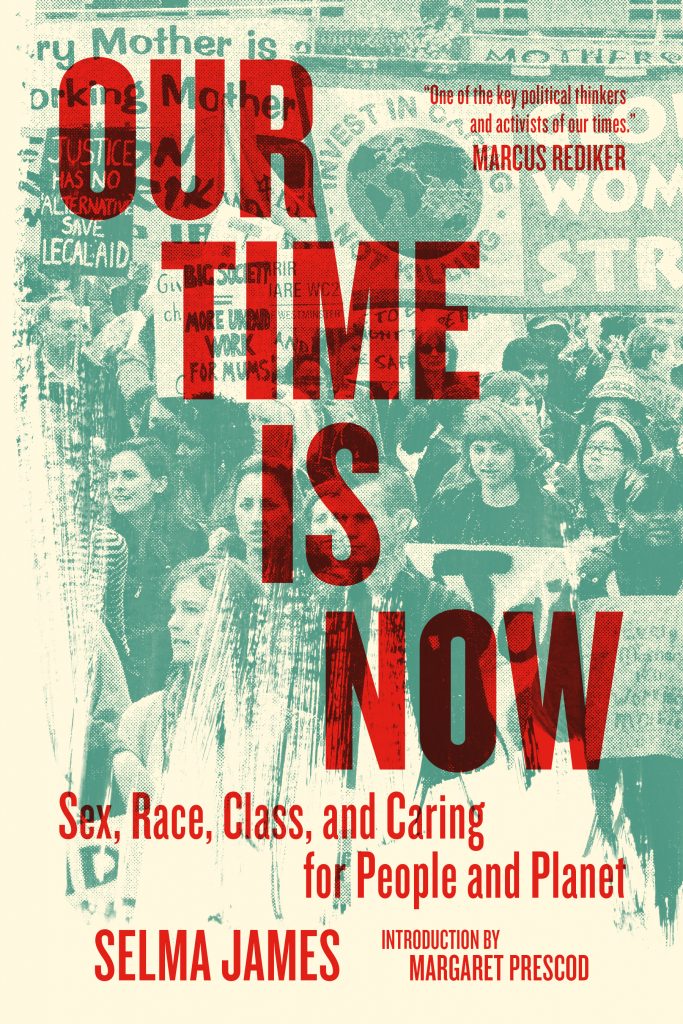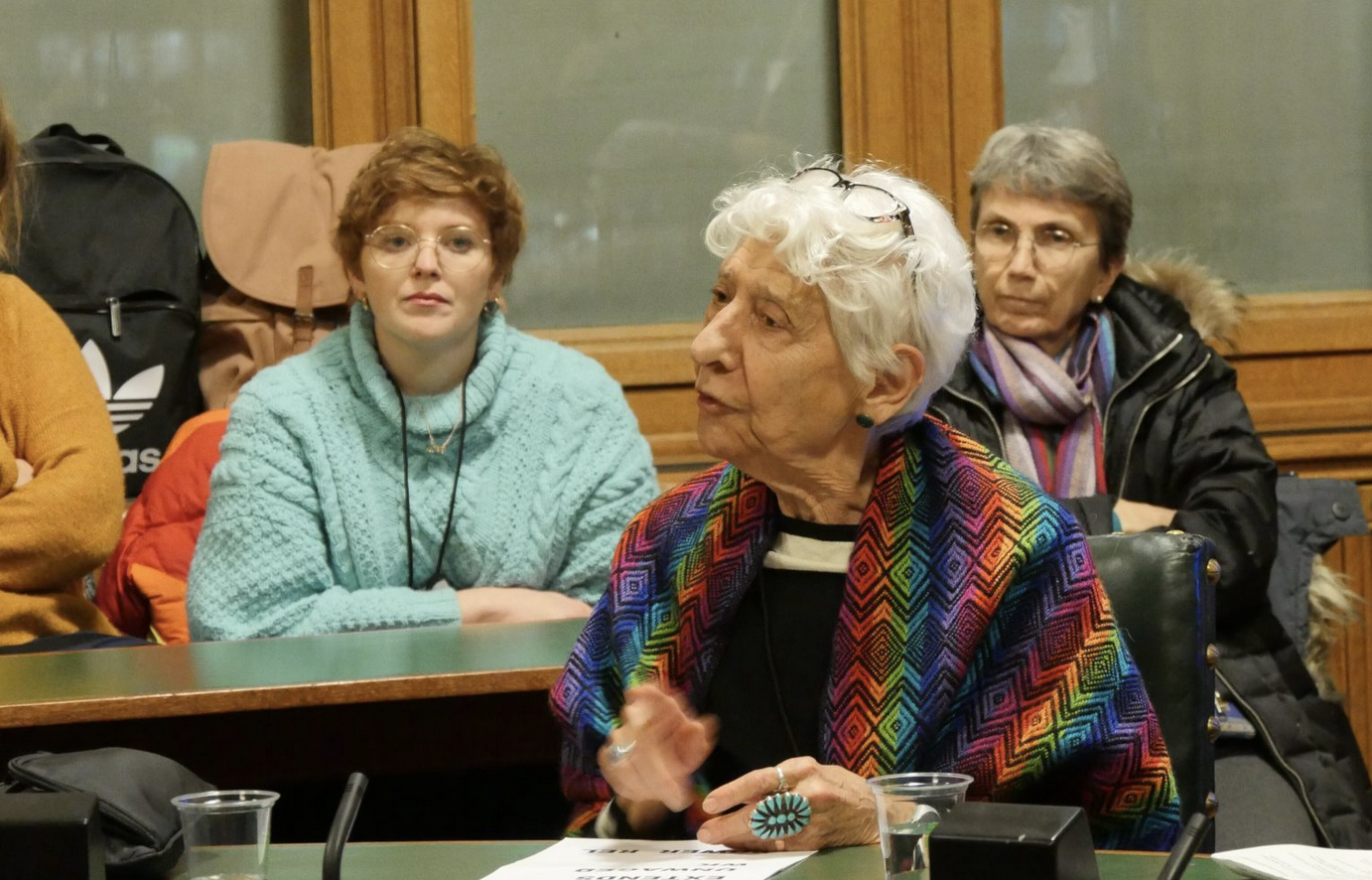By Marin Scarlett
Red Pepper Magazine
December 23rd, 2021
Marin Scarlett looks back – and forward – at Selma James’ seven decades of intersectional activism
Sex, Race and Class is now in its third incarnation. A short pamphlet of the same title was originally published in 1974, and an anthology spanning a staggering seven decades of activism was published in 2012. Our Time is Now, while covering significant achievements and developments during the 1970s and 80s in its opening, then leaps forward to 2012 onwards to focus on Selma James’ more recent work.
Seven decades is a lot to catch up on, but the book is accessible even for relative newcomers. James’ writing is light on jargon and each essay is prefaced with a sentence or short paragraph providing context for when it was written.
Money Talks
At the heart of James’ work is her Wages for Housework (WFH) campaign, founded in 1972 and built on recognising the importance of money. Money is the foundation of everything; without it, no other cause or need can be meaningfully addressed. James advocates WFH as the optimal framework to redistribute capital more fairly and thereby tackle gender inequality.
The unifying cause of money prompted the development of what James dubs a ‘Pro-Money Coalition’, receiving wide-ranging support from groups conflicted over other issues such as reproductive and LGBT rights. This coalition featured collaborations unlikely and endearing. ‘Flemish women… don’t work with prostitutes and lesbians,’ one Belgian collaborator hesitantly tells James in 1985, while still eager to participate in the upcoming strike known as Time Off for Women. James’ internal response – that they likely did but didn’t know it – is trumped by her own commitment to unity as she recounts replying: ‘That’s fine. The important thing is to win, and we must all come out…together.’
This is a refreshing change from the often uncompromising and entrenched positions of our current combative climate. It is all too easy to imagine these groups today rejecting each other, rather than accepting their different perspectives and continuing to work together in pursuit of a common cause.
Failings of feminism
This is not to say that James is unwilling to criticise. She does not shy away from pointing out the faults she perceives in mainstream feminism, which prioritises corporate ladder-climbing while disdaining domestic labour. James wholeheartedly rejects work outside the home as the primary vehicle for women’s liberation. As well as this perceived disdain for conventional female labour, she points out that women in paid work are still stuck with the bulk of domestic tasks, even in the most egalitarian of societies. Work outside the home doesn’t so much liberate women as double their load.
While James favours WFH – recently rebranded as ‘care income’ – over a universal basic income, her stance has parallels with David Graeber’s ‘bullshit jobs’ thesis. Why relentlessly contrive jobs to keep people in paid employment, when we can instead recognise the labour that half the planet is already doing?
James also rejects representation as a self-contained victory: if those in powerful positions do not support the wider interests of the marginalised, nothing has been achieved. She references economist Alison Wolf’s findings that workplace success correlates with a decline in altruism. High achievers are apparently less inclined to fight for the sisterhood than to pull up the ladder behind them. As such, James rejects de facto support for women over men in positions of power.
As someone committed to intersectionality before the idea became mainstream, it is fitting that James ends her book with essays that explain the importance and contribution of different groups of women to keep driving the movement forward. From the 1970s to now, her writing remains infused with energy and momentum; even after seven decades, and her palpable disappointment at the latest UK general election, James has no apparent plans to discontinue her work. As such, the book serves as both a recap and a plan for the future. After all, our time is now.
Marin Scarlett is a writer and activist with sex worker wellbeing project Umbrella Lane and the English Collective of Prostitutes. Our Time is Now: Sex, Race, Class and Caring for People and Planet is out now from PM Press







